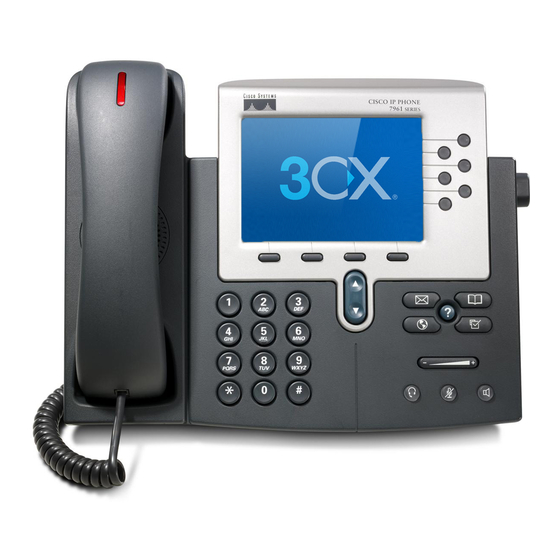Cisco Unified IP Phones and Your Network
Document Topics
Cisco Catalyst Switches
Integrated Service Routers
Cisco IOS Software
Phone Configuration Files
Phone configuration files are stored on the TFTP server and define Cisco Unified Communications Manager
connection parameters. In general, whenever you make a change in Cisco Unified Communications Manager
that requires the phone to reset, a change is made automatically to the phone configuration file.
Configuration files also contain information about the image load that the phone should be running. If this
image load differs from the one currently that is loaded on a phone currently, the phone contacts the TFTP
server to request the required load files. These load files are digitally signed to ensure the authenticity of the
file source.
In addition, if the device security mode in the configuration file is set to Authenticated and the CTL file on
the phone has a valid certificate for Cisco Unified Communications Manager, the phone establishes a TLS
connection to Cisco Unified Communications Manager. Otherwise, the phone establishes a TCP connection.
For SIP phones, a TLS connection requires that the transport protocol in the phone configuration file be set
to TLS, which corresponds to the transport type in the SIP Security Profile in Cisco Unified Communications
Manager Administration.
If the device security mode in the configuration file is set to Authenticated or Encrypted but the phone
Note
has not received a CTL or ITL file, the phone tries four times to obtain the file so it can register securely.
Cisco Extension Mobility Cross Cluster is an exception, in that the phone permits a TLS connection to
Note
Cisco Unified Communications Manager for secure signaling even without the CTL file.
If you configure security-related settings in Cisco Unified Communications Manager Administration, the
phone configuration file contains sensitive information. To ensure the privacy of a configuration file, you
must configure it for encryption. For more information, see the Cisco Unified Communications Manager
Security Guide, "Configuring Encrypted Phone Configuration Files" chapter.
A phone requests a configuration file whenever it resets and registers with Cisco Unified Communications
Manager.
A phone accesses a default configuration file named XmlDefault.cnf.xml only when the phone has not received
a valid Trust List file that contains a certificate assigned to Cisco Unified Communications Manager and
TFTP.
If autoregistration is not enabled and you did not add the phone to the Cisco Unified Communications Manager
database, the phone system rejects the phone registration request with Cisco Unified Communications Manager.
URL
http://www.cisco.com/en/US/products/hw/switches/ps708/tsd_products_
support_series_home.html
http://www.cisco.com/en/US/products/hw/routers/index.html
http://www.cisco.com/en/US/products/sw/iosswrel/products_ios_cisco_
ios_software_category_home.html
Cisco Unified IP Phone 7941G, 7941G-GE, 7942G, 7961G, 7961G-GE, and 7962G Administration Guide for Cisco Unified
Phone Configuration Files
Communications Manager 9.0 (SCCP and SIP)
5

